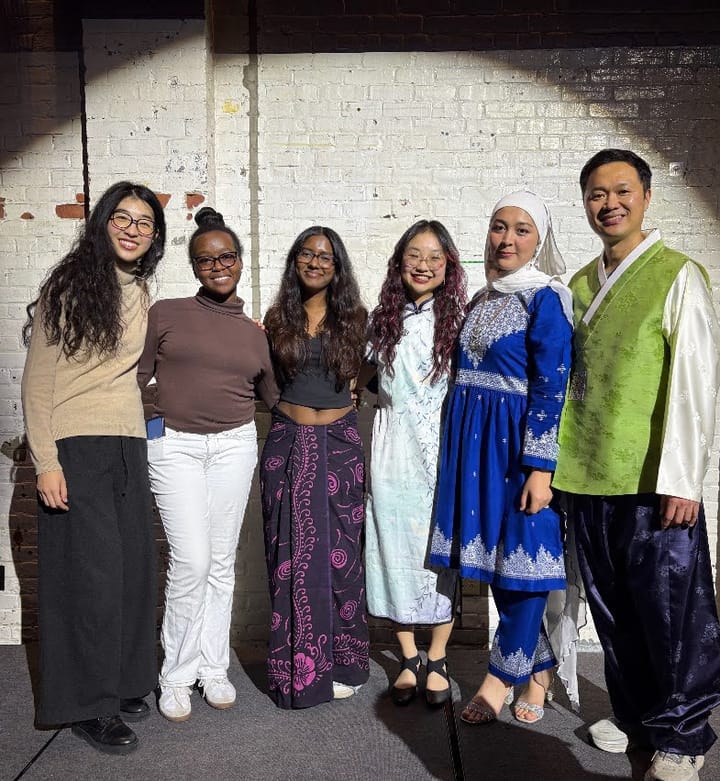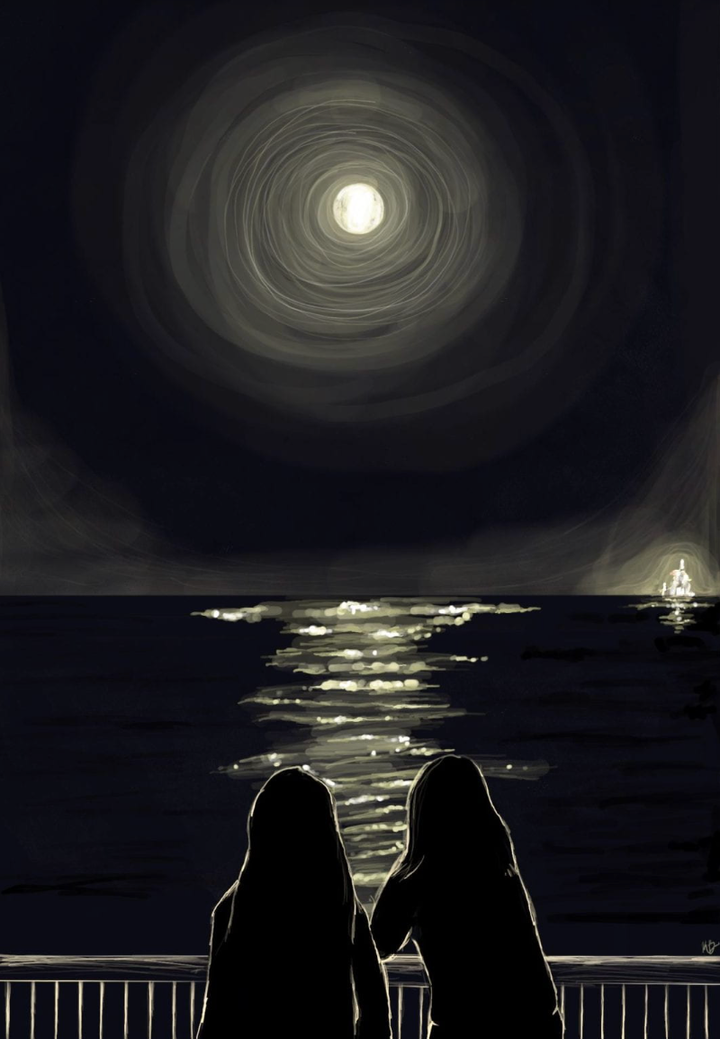Queerosity: Toward a New Language
I spotted him the minute he entered the room, and from that moment it was bob and weave.
We’d gotten together on the dance floor in the recent past. Things had, admittedly, gone beyond G-rated, and we’d both had a good time. But that wasn’t part of my plan for the night this time around.
It’s one thing to avoid somebody when you’re out on a Saturday night in a room full of people dancing. It’s another thing entirely to try to avoid somebody in a room full of people dancing while going about business as usual. But a night of music and dancing is worth fighting to keep hold of. And I was successful — for a while.
I was in the corner under the speaker, turning away from that essential exchange of “I’m going to the bathroom, I’ll be right back”/“Okay,” when I looked down to find him backing into me with vigor that was somewhere between flattering and embarrassing. I sighed inwardly, as does one does when grinding is happening but just isn’t in the mood. So I decided to wait it out; after all, it takes two to tango. Surely a disinterested partner would kill the groove?
But despite my best efforts to project an aura of ‘politely disinterested,’ he remained undeterred, enthusiastic enough for two. After I’d fended off two attempts to get under my shirt while trying to be subtle about doing so, I thought that the misadventure was nearing its end. He’d get the hint, I’d get back to my friends, move on and—
He put his hands down my pants.
My mind blanked. I was blindsided. Ignoring the not-inconsiderable physical discomfort and mechanical awkwardness (his hand movements were akin to a combination between trying to open a doorknob, changing gears in a car and aggressively rummaging around in a silverware drawer), I was freaked out. I was mortified. I wanted to vanish into the floor. I felt hugely, eternally dirty, unclean. WHAT THE FUCK, HE’S GROPING ME.
I distinctly remember silently mouthing ‘HELP ME’ to the snatches and glances of my friends that I could pick out through the crowd. But I never caught their eyes. I felt some hideous combination of utter invisibility and total exposure.
Eventually he retracted his hand. Into the opening I, in a voice high enough to be mistaken for authentic and brittle enough to be mistaken for necessarily awkward, threw the ‘I need to check on my friend’ excuse and fled in a too-tightly composed manner.
The next day, I couldn’t stop thinking about it. Or the next day. Or the one after that. The memory looped continuously, each sound and smell and feeling recorded with utter faithfulness. I felt secretly diseased, as though if I were caught under a black light a landscape of pustules and oozing sores would be revealed. It was this persistent feeling of something wet and heavy perching at the base of my neck between my shoulder blades: I visualized it distinctly as an octopus. My nerves felt worn and frayed, sputtering like worn-out live wires … One dinner I thought I saw him out of the corner of my eye in Val; I only managed to regain my hold on my tray after a long (and, I was convinced, highly visible) fumble. It felt monstrously wrong and unfair that my body should be thrown into such chaos by someone else, that I should feel such loss of control.
How did it happen? And more specifically, I asked myself in acid tones, how could I have been so stupid? Of course it happened. With a strategy of ‘acquiesce, indulge and don’t make a fuss,’ how could it not have happened? And it’s not as though I was physically restrained, after all; I did have a height advantage. I could’ve fought, couldn’t I? But I didn’t, and so there I was.
I tried to describe what had happened, to classify it, to understand it. What was it? A groping? A sketchy, uncomfortable, gross Thing That Just Happened? I never imagined that I’d be in this sort of situation. Really, I never even thought that these sorts of situations were possible except in the most vague, academic sense. I didn’t have any words to describe it, to make sense of it. Even now, I still don’t have the language — and that might be the most troubling part of the whole thing.
There’s been a lot of necessary discussion on campus around sexual issues over the last year. That discussion has, inevitably, taken place within a certain context: thoroughly heterosexual, with male/masculine aggressors and female/feminine victims. This is how the discussion has gone because, as a society, we only have the language to talk about these issues in this specific way, however flawed it might be. Given our society, this state of affairs is to be expected. However, it’s also extremely unfortunate.
‘Sexual disrespect.’ ‘Sexual assault.’ ‘Victim.’ ‘Perpetrator.’ These are uncomfortable terms on an uncomfortable topic. They describe a whole host of people and situations — rather, they that’s what they should do. Instead, they have taken on a very specific heteronormativity and thus only serve to map to precise instances to the exclusion of others —many others. Discussions of these issues are trapped by the gender dichotomy that perpetuates these injustices and inequalities in the first place. Discussions are thus enslaved to support them. Queer people are often at odds with classic gender roles, not only at the personal level but also at the societal level, as queerness is seen as a first-order disqualification. Queer people are implicitly and explicitly excluded from much of life and from most discussions, this being a particularly dangerous and damaging instance. Worse, there is a pervasive feeling — not unknown within the queer community itself — that a given amount of discomfort is ‘just how things are,’ an inherent part of the life as lived. Even men have little recourse, despite — and indeed, because of — societal determinations, bound up by a hazy, largely negative definition of ‘man,’ of which one of the few clear, affirmative assertions is ‘This cannot and does not happen to you.” So we are unable to talk to these people about the situations they may face and how they might prepare for them, and we lack even the most basic language to enable them to protect themselves.
Talking about sexual issues is never easy; they evoke powerful emotions and touch on intimacies and vulnerabilities that few things do. But we must talk about them. And to talk about them, to really talk about them, we must talk about them in their entirety. We must acknowledge all the people they affect in all the ways they affect them, not just a subset, not just a fraction, not just a few. Because these are, in the most basic sense, human issues.





Comments ()